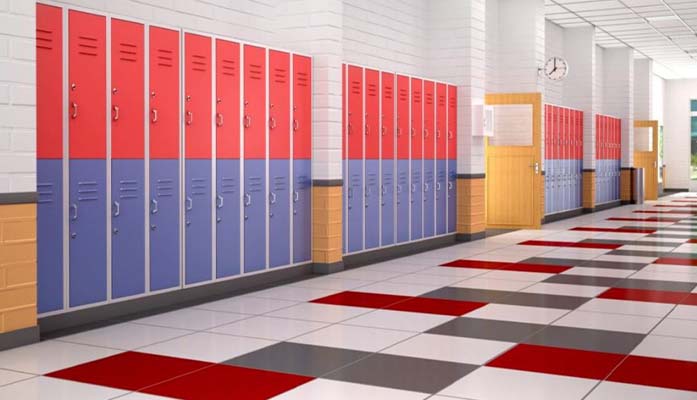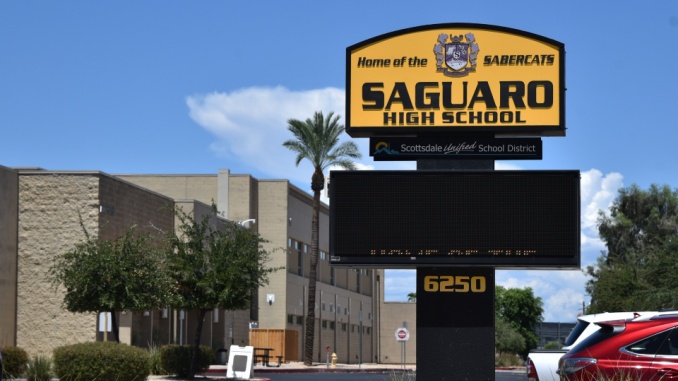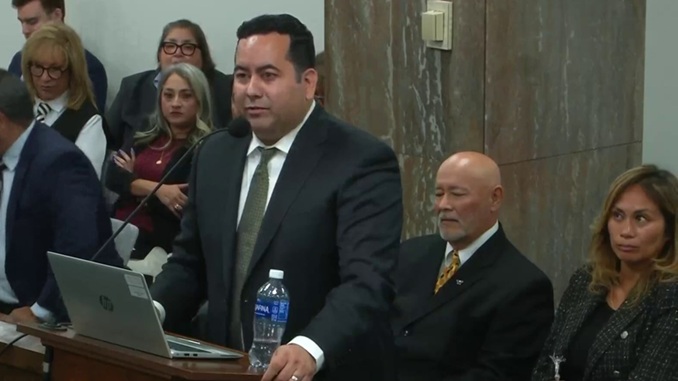
by Jonathan Eberle | Nov 11, 2025 | Education, News
By Jonathan Eberle |
A new survey from the Arizona Department of Education (ADE) indicates that the state’s teacher shortage remains severe, with more than 1,000 teachers leaving classrooms since July and thousands of positions still unfilled or covered by temporary staffing arrangements.
According to the data, 763 teachers resigned or failed to report for duty after July 1, and an additional 292 resigned after the school year began, totaling 1,055 departures. The survey, conducted in late August, received responses from 523 of the state’s 629 public school districts and charter schools—an 83% response rate.
The findings show more than 4,200 teaching positions remain vacant statewide. Of those, nearly 30% are being filled by long-term substitute teachers, about 24% are being covered by current educators giving up preparation or planning time, and roughly 23% rely on temporary staffing agencies. Nearly 1,400 of the openings remain entirely unfilled.
State Superintendent of Public Instruction Tom Horne called the situation “intolerable” and urged state leaders to take action. He pointed to long-standing concerns over teacher pay and what he described as insufficient administrative support on student discipline as key factors driving educators out of the profession.
“Teachers have been underpaid for years, and they have also been discouraged by a lack of administrative support for classroom discipline,” Horne said. He noted that he plans to renew his calls for increased pay and stronger discipline policies during his annual address to lawmakers. He also expressed hope that the upcoming debate over the reauthorization of Proposition 123 will include additional funding for teacher salaries drawn from the state land trust, emphasizing that such an approach would not require a tax increase.
Horne said the results reinforce what many educators have been voicing for years. “This survey is disheartening because the solutions are obvious,” he said. “Better pay and robust support from administrators on discipline are vital.”
Arizona has faced persistent teacher shortages for more than a decade, with advocacy groups and education leaders frequently citing low pay, high turnover, and workforce burnout as major challenges. The new survey suggests those issues remain widespread as the school year continues.
Jonathan Eberle is a reporter for AZ Free News. You can send him news tips using this link.

by Matthew Holloway | Nov 10, 2025 | Education, News
By Matthew Holloway |
A Change.org petition calling for the removal of a Turning Point USA (TPUSA) “Club America” chapter at Saguaro High School in Scottsdale lists 429 verified signatures on its page as of November 7, 2025. The petition—titled “Stop Political Hate Clubs in Arizona Schools”—urges Scottsdale Unified School District (SUSD) Governing Board members Carine Werner, Amy Carney, and Maricopa County Superintendent Shelli Boggs to dissolve the club, alleging it promotes “hate, division, or discrimination under the guise of ‘religious’ or ‘political’ values.”
The petition claims that TPUSA “has a documented history of targeting marginalized groups and spreading harmful rhetoric” and argues its presence “sends the message that intolerance is acceptable.” It adds, “While every student has the right to their own political beliefs, no club should be allowed to promote hate, division, or discrimination under the guise of ‘religious’ or ‘political’ values.” Funds raised through Change.org will support “awareness efforts, educational events, and promotional materials.”
Public comments on the petition echo those themes. Saguaro alumnus Seth wrote, “As a Saguaro alum, I am appalled that such a club would be allowed to exist… The very intention of Club America is to sew [sic] discord and position one side as morally right and the other as morally wrong.” Naleah of Peoria said, “This club is not freedom of speech; it is built on the premise and beliefs of a racist and sexist….” Ines of Scottsdale added, “Saguaro should be a community that nurtures its students into well-informed adults. Having a political group that is there to influence high school kids instead of properly educating them… is harming the fundamentals of education.”
TPUSA rebranded its high-school program as “Club America” in July 2025, but the petition refers to the Saguaro organization as a “Turning Point USA chapter.” The filing claims Saguaro recently approved the club under SUSD’s policy allowing student-led groups with staff sponsors, elected officers, and signed agreements. The district has not publicly confirmed the approval.
Scottsdale Unites for Educational Integrity, a parental-rights advocacy group, publicized the petition on X on Nov. 7, urging followers to email the SUSD board at GovBRD@SUSD.org to “uphold students’ rights to start a Turning Point club.” In the post, the group described the petition as “an effort to silence students at Saguaro High School who wish to launch a @TPUSA club,” quoting the petition’s claim that TPUSA clubs promote “discrimination under the guise of ‘religious’ … values.”
The advocacy group also alleged that Saguaro Principal Lisa Hirsch “previously allowed an antisemitic presentation to occur at Desert Mountain High School” when she was principal there—an allegation referencing a 2023 incident that drew statewide scrutiny. District communications at the time condemned hate speech and denied institutional antisemitism.
The event, also flagged by Scottsdale Unites for Education Integrity, involved a UNICEF club at Desert Mountain High School (DMHS) telling students that Israel has been illegally occupying, taking, and settling on land belonging to Palestinians; that Israel had engaged in ethnic cleansing and apartheid by forcibly displacing and discriminating against Palestinians; and that Israel unjustly tortured and imprisoned Palestinians, including 80 percent of Palestinian children.
TPUSA, founded in 2012, has faced similar opposition in other Arizona districts. In October 2025, Snowflake High School denied a TPUSA club request citing a moratorium on new clubs dating to 2009, according to FOX 10 Phoenix.
SUSD did not immediately respond to requests for comment. A message sent through Change.org to petition starter Isabella Finley received no reply by press time.
Matthew Holloway is a senior reporter for AZ Free News. Follow him on X for his latest stories, or email tips to Matthew@azfreenews.com.

by Jonathan Eberle | Nov 10, 2025 | Education, News
By Jonathan Eberle |
Voters in the Tolleson Union High School District decisively rejected two funding measures last week, signaling a sharp reversal from past election outcomes and raising new questions about public trust in district leadership.
Both a proposed bond and budget override failed by wide margins, marking what state leaders are calling a significant shift in community sentiment. According to Arizona State Representative Matt Gress, who chairs the House Education Committee and co-chairs the Joint Legislative Audit Committee, the margin represents an estimated 40-point swing from the district’s last round of voter-approved measures.
“That kind of reversal doesn’t happen by chance,” Gress said in a statement. “It reflects taxpayers’ deep concern over how their money is being managed and the direction of district leadership.”
The vote comes as the district faces ongoing scrutiny from lawmakers over financial transparency. Gress first requested detailed financial transaction data from Tolleson Union on August 26 following a legislative audit hearing. The district declined to provide electronic records and instead issued an estimate exceeding $26,000 to fulfill the request. A follow-up clarification was sent on September 17, and as of last week the district had not complied.
Gress said the lack of cooperation has only fueled public skepticism. He pointed to delayed responses to official requests and continued planning for an $80 million domed stadium as examples of misplaced priorities, particularly as some governing board members face an active recall effort.
“When a school district refuses to provide basic financial records to the Legislature … public trust deteriorates quickly,” he said. “The Tolleson Union Governing Board should halt any further work on the stadium until transparency is restored and confidence is rebuilt.”
Supporters of the failed measures argued the additional funding was needed to maintain educational programs, address facility needs, and manage enrollment growth. But Tuesday’s results underscore a shifting climate in which voters appear more reluctant to approve additional spending without stronger fiscal assurances.
“The people of Tolleson have made their position clear: accountability must come before new spending,” Gress said. He added that lawmakers will continue to press for the financial records needed to assess how taxpayer funds are being used. School districts often rely on bonds to finance major capital projects and budget overrides to supplement operational funding. The rejection of both measures could force Tolleson Union to adjust spending plans or scale back initiatives in the months ahead.
Jonathan Eberle is a reporter for AZ Free News. You can send him news tips using this link.

by Matthew Holloway | Nov 4, 2025 | Education, News
By Matthew Holloway |
A year-long Freedom of Information Act (FOIA) battle has revealed over 1,000 pages of emails from the University of Arizona (U of A), exposing coordinated efforts between faculty and pro-Palestine groups to undermine condemnations of the Oct. 7th Hamas attacks on Israel. The documents, obtained through legal threats after an initial denial, detail attempts to soften U of A statements on terrorism and revise an anti-Semitism resolution to prioritize criticism of police responses to pro-Palestine protests.
Brian Anderson, founder of the Saguaro Group and Arizona Capitol Oversight, filed the FOIA request in May 2024 targeting communications post-Oct 7th when Hamas terrorists killed 1,200 Israelis, mostly civilians, and many children. U of A initially refused, forcing Anderson to retain attorneys and threaten litigation, costing thousands of dollars before the June 2025 release. He detailed the ordeal in an X post on November 1, 2025, linking to a 12-page report.
Former U of A President Robert C. Robbins condemned the “antisemitic hatred, murder, and atrocity” officially on Oct. 11, 2023, specifically criticizing Students for Justice in Palestine (SJP) for endorsing the attacks. Faculty backlash was swift. On Oct. 12th, an associate emailed Faculty Senate Chair Leila Hudson, accusing Robbins of “smears” against SJP and coordinating with Jewish Voice for Peace on protests, threatening a Palestine Legal report. Hudson, an associate professor in Middle Eastern and North African Studies, replied supportively and issued a statement on Oct. 13th condemning “illegal violent collective punishment” on Gaza civilians, equating it to Hamas terrorism.
Faculty emails poured in praising Hudson. One cited distress among Saudi, UAE, and Yemeni students. Another called her “courageous,” noting that “Kochs Off Campus” planned to attend a faculty meeting. Hudson privately noted shortening her draft to avoid “comparisons to ISIS tactics,” instead favoring words that would “bring people into dialogue.”
Pro-Palestine activity intensified on campus. On Oct. 26, 2023, the Coalition of Black Students and Allies emailed faculty, calling Oct. 7th a “powerful emblem of Palestinian resistance” against Israeli “apartheid.” Hudson spoke at a Nov. 6 Faculty Senate meeting on the “genocide” in Palestine, sympathizing with protesters against “occupation” and U.S. policy. An interim provost announced a Nov. 9 “Walkout for Palestine,” and United Campus Workers of Arizona issued a Nov. 20 open letter accusing pro-Palestine critics of “retaliation.”
Vandalism incidents included an Oct. 19, 2023, incident in which a swastika and “dirty Jew” graffiti were found on a student’s door, classified as bias-based. Professor Jean-Marc Fellous emailed on Jan. 14, 2024, about a prior swastika in his lab dismissed as “vandalism.” In April 2024, SJP’s “Israeli Apartheid Week” coincided with Passover, flagged as provocative. U of A’s Jewish fraternity Alpha Epsilon Pi was vandalized that month.
Faculty suspensions followed: Professors Rebecca Lopez and Rebecca Zapien were briefly removed in December 2023 for calling Hamas a “resistance group.” They were reinstated later. Hudson defended them, stressing teaching “causes and motivations of October 7th.”
An anti-Semitism resolution draft by Fellous on April 13, 2024, condemned fraternity vandalism as “virulent antisemitism.” Hudson emailed on May 3 to “adjust” it for “admin/police violence” against protesters. Colleagues protested, with Barry Goldman questioning the omission of violence against Jewish students. Fellous agreed to separate issues, noting “antisemitism and hate crime have nothing to do with police violence.” On May 5, another colleague accused Hudson of withholding the draft and warned of antisemitic implications.
At the May 2024 Faculty Senate meeting, Hudson declined the resolution, referring it to Diversity, Equity, and Inclusion for “further study.” She reaffirmed rejection of all biases, including those on “gender identity, reproductive status, and sexual orientation.” On Nov. 4, 2024, she reported ongoing feedback collection.
On Dec. 2, 2023, Hudson’s “State of the Faculty” message announced a Campus Climate response team for “incidents not meeting credible threats,” warning against labeling ceasefire calls or anti-Israel views as “pro-Hamas” or “antisemitic.” Law professors Toni Massaro, Tessa Dysart, and Mona Hymel then expressed concern, and distanced themselves with a fourth colleague whose name was redacted, adding, “I don’t think that a person with an understanding of antisemitism drafted or reviewed the part concerning hate speech.”
The Foundation for Individual Rights and Expression (FIRE) threatened legal action on Dec. 12, 2023, calling it a “deeply chilling and unlawful” act of “formalized government monitoring of protected speech.”
The Wall Street Journal editorial board highlighted the emails on Oct. 30, 2025, noting “anti-Israel and pro-Hamas bias among the faculty and student groups.” Anderson’s X thread amplified the report.
Anderson stated: “It took the University of Arizona an entire year to release these records to me, from my initial FOIA request in May 2024 until the final production in June 2025.” He added, “Multiple attorneys and thousands of dollars in legal fees were required to successfully reverse the university’s unnecessary delay (and, later, its formal denial) of my request, which it did only after a final warning that I would be filing a lawsuit within the next 48 hours. More importantly, its refusal to hand over these records denied students and faculty any semblance of transparency into the mechanics behind what was happening on their own campus—or what has happened in the year since.”
He concluded, “The best-case scenario is that UA succumbed to a culture dominated by over-thinking, whataboutism, and misplaced priorities that allowed hatred to flourish. But its extended fight against transparency suggests a broader institutional failure—one bordering on purposeful evasion of public records laws—with the intention of riding out the storm until Israel and Palestine were out of the news. We deserve better from this public university.”
Matthew Holloway is a senior reporter for AZ Free News. Follow him on X for his latest stories, or email tips to Matthew@azfreenews.com.

by Ethan Faverino | Nov 3, 2025 | Education, News
By Ethan Faverino |
A group of students at Arizona State University hosted a public awareness event on Thursday, October 23, at the Memorial Union to highlight Antifa’s activities on campus and encourage students to confidentially report any known associates for submission to the Federal Terror Watchlist.
The event, hosted by College Republicans United (CRU), featured verified public records and official documents detailing students previously convicted of Antifa-related crimes, including multiple individuals who were active members or leaders of the Young Democratic Socialists of America (YDSA) at ASU at the time of their arrests.
“Like the Trump administration, we believe that if you see something, say something,” Kevin Decuyper told The State Press. According to the outlet, Decuyper co-founded CRU at ASU in 2018 as a student and is now the chairman of the College Republicans United national organization.
Former law enforcement officer and current Congressional candidate for Arizona’s 1st District, Paul Reevs also told The State Press, “What these students are doing, standing up and simply asking people to help them identify violent people, is courageous. We need that kind of leadership, and I want to support them when they do that.” He attended the event and spoke to students to raise awareness about Antifa-related criminal activity on and around campus.
In a release promoting the event, CRU cited Gabriel Nadales, a former Antifa member and National Director of Our America who spoke at the group’s ASU chapter in 2019 about the connection between ANTIFA and the YDSA.
According to The State Press, YDSA co-chair Isaac Burdge denied any organizational ties to Antifa, stating the group opposes fascism but does not engage in violence.
Despite Burdge’s claims that YDSA is not violent, there have been many documented cases of violence, including Benjamin Cooper, YDSA’s agitprop director at ASU, who has had multiple arrests for assaulting police.
Correction: A previous version of this story said that Gabriel Nadales was a featured speaker at the October 23rd event. Nadales did not speak at the event, but spoke to the group in 2019. The story has been udpated to reflect this.
Correction: A previous version of this story failed to cite reporting from The State Press. The story has been updated.
Ethan Faverino is a reporter for AZ Free News. You can send him news tips using this link.

by Ethan Faverino | Oct 31, 2025 | Education, News
By Ethan Faverino |
Arizona Superintendent of Public Instruction Tom Horne issued a statement opposing the State Board of Education’s decision to postpone the rulemaking to strip Diversity, Equity, and Inclusion (DEI) language from Arizona’s teaching standards.
The issue will now be taken up at the Board’s December meeting—a delay Horne warns risks $866 million in federal education funding and violates clear federal civil rights directives.
“I respectfully but strongly disagree with the vote to postpone opening the rule-making process,” declared Horne. “The President issued an Executive Order requiring DEI language to be removed from programs funded by federal dollars. It made it abundantly clear that federal education funding is at risk if DEI language remains in education programs. Failure to comply with federal guidance may result in the loss of an estimated $866 million to Arizona schools. That is a major funding cut to our schools, and we need to begin dealing with this as soon as possible.”
Horne pointed to a letter from the U.S. Department of Education’s Office for Civil Rights (OCR), signed by Acting Assistant Secretary Craig Trainor, which reaffirms that discrimination based on race, color, or national origin is illegal under Title VI of the Civil Rights Act of 1964, the Equal Protection Clause, and controlling Supreme Court precedent.
The guidance explicitly condemns race-based preferences in admissions, financial aid, hiring, training, discipline, housing, and graduation ceremonies, and warns that DEI programs often “preference certain racial groups and teach students that certain racial groups bear unique moral burdens that others do not.”
The OCR letter also cites the Supreme Court’s 2023 ruling in Students for Fair Admissions v. Harvard (SFFA), which states that the use of racial preferences in school testing and admissions is unlawful. Their message is simple: “If an educational institution treats a person of one race differently than it treats another person because of that person’s race, the educational institution violates the law.”
“Not only is the $866 million at risk, but there is a philosophical issue at stake, too,” continued Horne. “All people should be judged based on their character and ability, not their race or ethnicity. DEI language and programs promote the exact opposite, and they have no place in the classroom. The teaching standards, unfortunately, include DEI references, and they need to be removed.”
The teaching standards at issue direct educators to teach “equitably,” with “responsiveness to the cultural backgrounds and differing perspectives learners bring to the learning environment,” and to address the “social, emotional, and cultural needs of students.”
“These terms do not belong in teaching standards,” Horne concluded. “The standards are meant to direct educators on the most effective ways to teach students’ core academics. Every instructional minute is precious, and DEI efforts distract from that essential mission.”
Ethan Faverino is a reporter for AZ Free News. You can send him news tips using this link.






